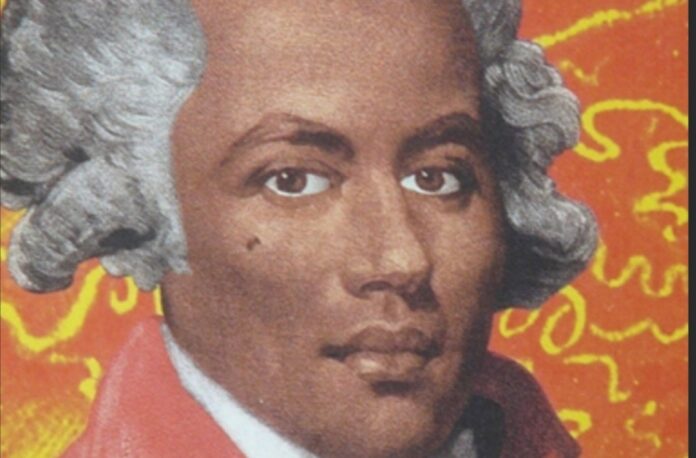We are all familiar with Bach, Mozart, Haydn, but how many of us have heard about Joseph Bologne?
And yet The Oxford Sinfonia is kicking off its 2022 schedule with a programme featuring all of the above, to help shine a light on the little known composer Joseph Bologne at University Church of St Mary’s in Oxford on Saturday 29 January.
Neil Halliday, Chair of the Oxford Sinfonia said: “We’re delighted to bring in a work by Joseph Bologne the ‘Chevalier de St-Georges’ to increase awareness of this remarkable man and his music for our first main concert in 2022.

“He was a leading composer in his day and the first significant composer of mixed race heritage.”
“BECAUSE OF HIS MIXED RACE BACKGROUND JOSEPH BOLOGNE WAS NEVER GIVEN THE SAME RECOGNITION IN EUROPE”
The Oxford Sinfonia‘s Anthony Wilkes continues: “His musical output was prolific, Joseph Bologne wrote many symphonies, countless chamber works and sonatas and several stage works and operas. He was a contemporary of Mozart and Haydn, Mozart in particular was a big fan, but because of his mixed race background he was never given the same recognition in Europe.

“His music received some attention during the latter part of the 18th century, but throughout the following 200 years interest had virtually disappeared.
“Thankfully in recent years his name and music are once again being recognised with increased performances, recordings and reviews.”
Bologne was a remarkable man, born into slavery in the mid 18th century on the French colony of Guadaloupe, the son of a French plantation planter and a slave mother.
So how did he come to Europe? “His father Georges Bologne took him to France to get an education, where he pursued his skills in fencing, music and soldiering. He achieved a formidable reputation with the sword, then later in music with concert performances, conducting and composition.

“Through his feared reputation as one of Europe’s leading fencers he was given the title of ‘Chevalier de St-Georges,” Anthony says.
And now thanks to The Oxford Symphonia you will be able to hear his Symphony No 2, alongside that of his contemporaries. The programme on Saturday, conducted by Margaret Faultless, includes: JC Bach’s Symphony No 6, Mozart’s Serenade No 12 K388 directed by Julian Faultless, Joseph Bologne’s Symphony No 2 and Haydn’s Symphony No 31 ‘Horn Signal’
Enjoy The Oxford Sinfonia‘s programme of familiar and unfamiliar classical music at the University Church of St Mary’s, High St, Oxford on Saturday 29 January at 7.30pm
Tickets £18/£15, accompanied under 18s free, from www.oxfordsinfonia.co.uk


















